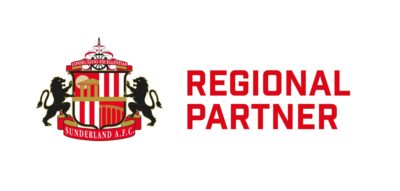Debt recovery is a sensitive subject at the moment given the ongoing difficulties being caused by the coronavirus. The Government is urging creditors to show restraint in order to avoid a tsunami of otherwise viable businesses being sent to the wall. However, with no end to the pandemic in sight, and Brexit poised to make trading conditions harsher for some, it is important that the thorny issue of debt recovery is addressed and tackled effectively.
‘Business owners and managers need to monitor debts closely and to have a plan of action which has regard to each individual debtor’s circumstances and is shaped by an objective assessment of their particular risk profile’ say Barry Wood commercial debt recovery lawyer with Richard Reed Solicitors in Sunderland.
Key considerations
Among the many factors that you will need to consider when developing an appropriate debt recovery strategy, are:
- whether the reason for non-payment of a debt is down to temporary problems from which the debtor can reasonably be expected to recover, or whether it is linked to ongoing financial difficulties that may prove to be terminal;
- whether you hold any security for the monies owed or could conceivably insist on security being provided as a pre-condition of tolerance or forbearance being shown;
- whether Covid-19 or Brexit considerations are likely to make the recovery of a debt more difficult, particularly if there is a delay in recovery being pursued; and
- the impact that non-payment of a debt will have on your own business interests and specifically on your cash flow and ongoing solvency.
Different strategies for different debtors
Having helped a number of businesses to devise debt recovery plans in recent months, we have begun to see a pattern emerging in the approach creditors are taking.
This can broadly be summarised as follows:
- for debtors with a previously unblemished payment record who can be expected to weather the Covid-19 and Brexit storm, creditors may exercise restraint where this can be achieved without jeopardising their own position;
- for debtors with financial difficulties which existed before the coronavirus took hold, and who look certain to be plunged into even deeper crisis over the coming months, the general consensus is that firm and forceful debt recovery action is required; and
- for debtors who are clearly on the brink of imminent collapse, there is widespread recognition of the need for urgent steps to be taken to try to recover the monies that are owed, but only where there is a realistic prospect that this can be achieved.
Of course, everyone’s circumstances are different and the issues facing your business may require a different strategy. For example, where the nature of your business dictates the need for existing commercial relationships to be preserved, the right approach may be to work more collaboratively with your debtors across the board. Conversely, where the accumulation of debt is threatening your continued survival, then it may be that your only choice is to adopt a more hardline approach irrespective of the reason(s) why your debtors may be struggling.
Debt recovery options
Among the possible debt recovery routes that you might consider pursuing are:
- the negotiation of a repayment plan, which enables a debtor to settle what they owe at a rate that they can actually afford and which you can commercially tolerate;
- the negotiation of a personal guarantee or property charge in order to provide security in respect of a corporate debt that you are not minded to fully call in at this stage;
- the exercise of any contractual rights that you may have, for example under the terms of a retention of title clause which entitles you to reclaim goods in the debtor’s possession that you have supplied but which they have not yet paid for;
- the instigation of court proceedings, where recovery of the debt by other means has failed and the chances of securing eventual payment will be greatly boosted by a court judgment being obtained; and
- the issuing of a statutory demand where the amount outstanding is at least £750 and you have reason to believe that the debtor will do all they can to find the money that they owe rather than face the prospect of insolvency action being commenced.
Covid-19 and Brexit
In deciding which debt recovery options are right for you, it is important to take account of whether coronavirus or Brexit should influence or shape your approach.
For example you might be keen to issue a statutory demand, but before electing to do this you need to be aware that:
- any demand you serve is likely to be void if it is issued while temporary measures aimed at providing debtors with time-limited protection against the use of this process during the Covid-19 crisis remain in force; and
- you will not be permitted to follow this up with a petition to have a defaulting company wound up while an interim ban remains in place to prevent this from happening, unless you can demonstrate that the debtor’s financial difficulties are not Covid-19 related.
Therefore, unless you are prepared to wait for these restrictions to be lifted, the use of insolvency-based debt recovery options may not currently be a feasible way to proceed.
Likewise, you may be minded to take an incremental approach to the recovery of monies you are owed. However, where the debts you are dealing with have been racked up by a foreign business located within the EU, then this may not be advisable to do given the uncertainty which exists around the continuation of reciprocal arrangements once Brexit has taken effect.
How our debt recovery specialists can help
Using our in-depth understanding of the commercial debt recovery process and the various forms that this may take, our experienced lawyers can help you to come up with a workable and effective debt recovery plan that maximises your chances of recovery and which is also sensitive to your own commercial needs.
With our help, you can categorise your debtors into those who can pay and those who cannot and target your response accordingly, depending on the debtor’s circumstances, their individual risk profile and your appetite and capacity to show tolerance and forbearance where this may be warranted.
For further information, please contact Barry in our dispute resolution team on 0191 567 0465 or email [email protected]









